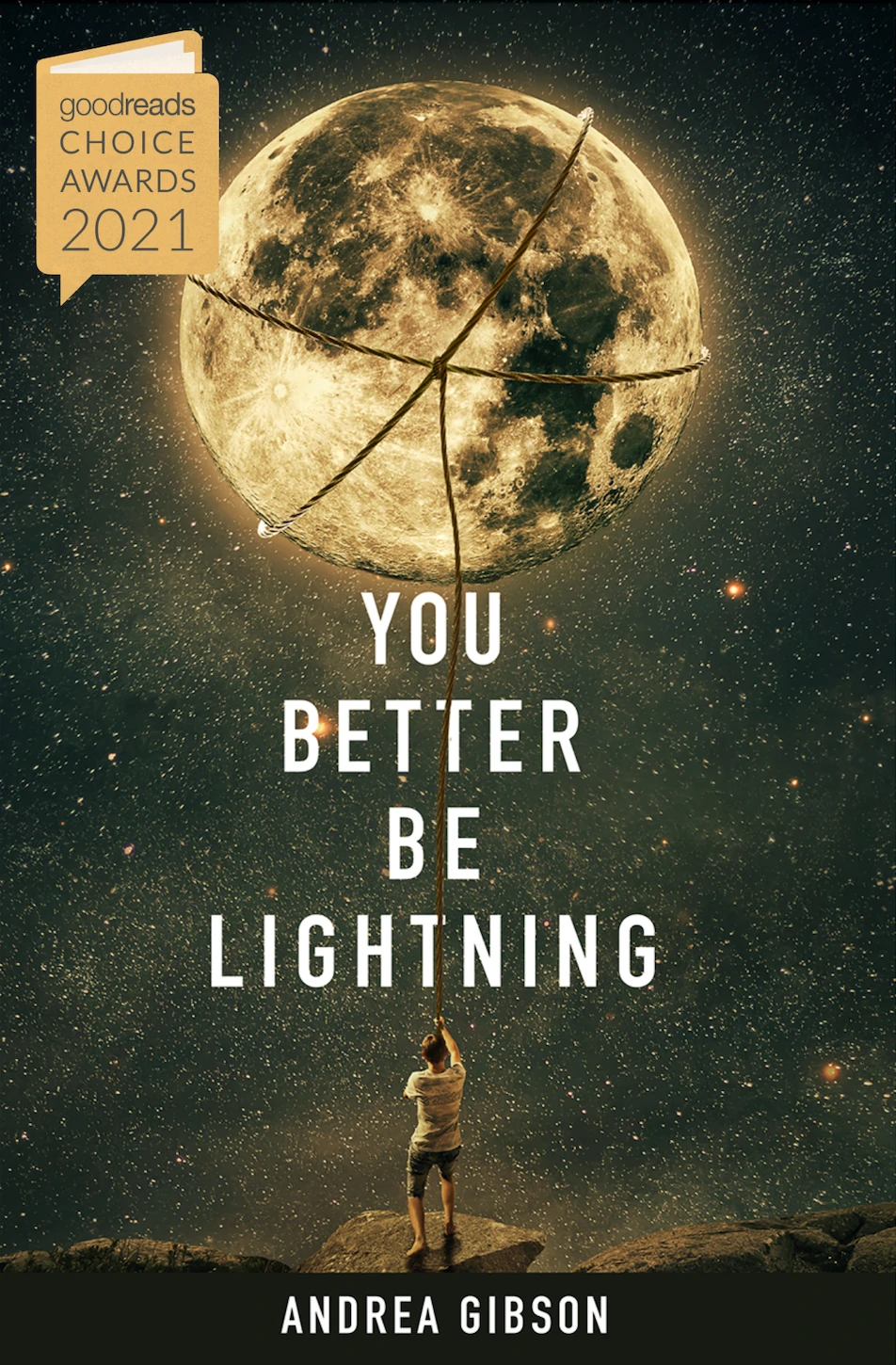
Flashes of Lightning Amidst the Storm: A Review of You Better Be Lightning by Andrea Gibson
Words By Erin Clements
Published November 9, 2021 by Button Poetry.
I’ve found comfort in reading poetry for as long as I can remember. It’s a genre where writers rip themselves to shreds and sew themselves back together, often in less than a page and in as few words as possible, which fascinates me as a reader, writer, and survivor of my own trauma. Poets lay their suffering out in the hopes that someone can relate, that someone can learn from their experiences, that someone is listening as they bare their soul.
In You Better Be Lightning, Andrea Gibson does just that. You Better Be Lightning is a collection of queer, feminist, political poetry exploring everything from love, trauma, and chronic illness to climate change and outer space. With this book covering such vast topics, Gibson jumps to a new concept with each poem instead of organizing them into relevant sections, which makes it difficult for the reader to follow the thread of connection between each piece. While none of the poems were bad, I struggled to see how they fit together to create a cohesive anthology. My limited experience with Gibson’s work is watching their slam poetry videos on Button Poetry’s YouTube channel, so I’m used to experiencing their work outside of the context of a curated collection. I love Button Poetry as a whole and deeply love Andrea Gibson’s work, but You Better Be Lightning didn’t quite meet my expectations.
I’m the kind of poetry reader that gravitates towards poems that discuss trauma and “have something to say” rather than wax relatable platitudes. I also prefer carefully chosen word counts and poems where there are no words to spare, rather than longer form, stream-of-consciousness styles. Not all of Gibson’s pieces fell within my taste range, but some did, especially “Queer Youth Are Five Times More Likely to Die by Suicide” being immediately followed by “No Such Thing as The Innocent Bystander” for maximum impact on the reader. “Queer Youth Are Five Times More Likely to Die by Suicide” is a perfect example of a longer poem that does not feel overly long. It is deeply personal while being relatable on a broad scale: it turns cold statistics and mentions of hatred and bigotry into an ode to softness, to moments of love, to kindness. It shows the dichotomy of the queer experience—pain, and loss balanced with love, support, and family, even if that family is not necessarily blood. Immediately following this multipage poem is “No Such Thing as the Innocent Bystander,” a piece of only six words. “Innocent Bystander” is exactly the kind of short poem I love. It conveys its meaning in as few words as possible but still packs a massive punch. “Innocent Bystander” and “Queer Youth” also convey the dichotomy of my own taste when it comes to length. Ultimately, it boils down to whether I feel the poem conveyed its meaning without extra words, and “Innocent Bystander” and “Queer Youth” both do that incredibly well. Unfortunately, the same is not true for much of the rest of the collection.
Overall, Gibson’s longer poems fall into a stream-of-consciousness style, and I often felt their meaning became muddled by extra words or context. Shorter poems like “Constellations Rearrange Themselves into a Protest Sign” and “Wellness Check” had a greater impact than “Climate Change” and “The Asshole at the Airport,” even though I related to all four. “Constellations Rearrange Themselves into a Protest Sign” is only a few sentences long, but any poem that begins with “Every uprising has the universe on their side” wins my heart based on philosophy alone. The same is true for the final sentence of “Wellness Check,” which reads, “I can measure my wellness by this question: Is my attention on loving or is my attention on who isn’t loving me?”
It’s sentences like that that give me the metaphorical gut punch I seek when I read poetry; unfortunately, I didn’t get that feeling from poems like “Climate Change” and “The Asshole at the Airport.” I relate to their premises, but it felt like the core intent became lost amongst other thoughts and commentary. Both pieces had compelling, gut-punch sentences, but the impact was ultimately bogged down by everything else.
All of Gibson’s poetry is deeply personal and based around their own lived experiences, which is something I adore. But their shorter pieces had clear intent and focus and set out to accomplish them, while their longer poems were more of a metaphorical winding road that took the reader on a journey. Despite that journey, it felt like the longer ones stopped short of their destinations.
How does one rate a collection where the poems are good but not as good as you’ve come to expect from the poet? In the past, their poetry permanently ingrained itself in my brain because of its impact and relatability. Some pieces from this collection have certainly done the same, but a lot of them fell short of my expectations. That said, I would still recommend You Better Be Lightning to poetry lovers and novices alike, especially queer readers, as even the poems I didn’t connect with are still great, but pieces like “Queer Youth Are Five Times More Likely to Die by Suicide” and “No Such Thing as the Innocent Bystander” are life-changing enough to merit reading the collection on their own.